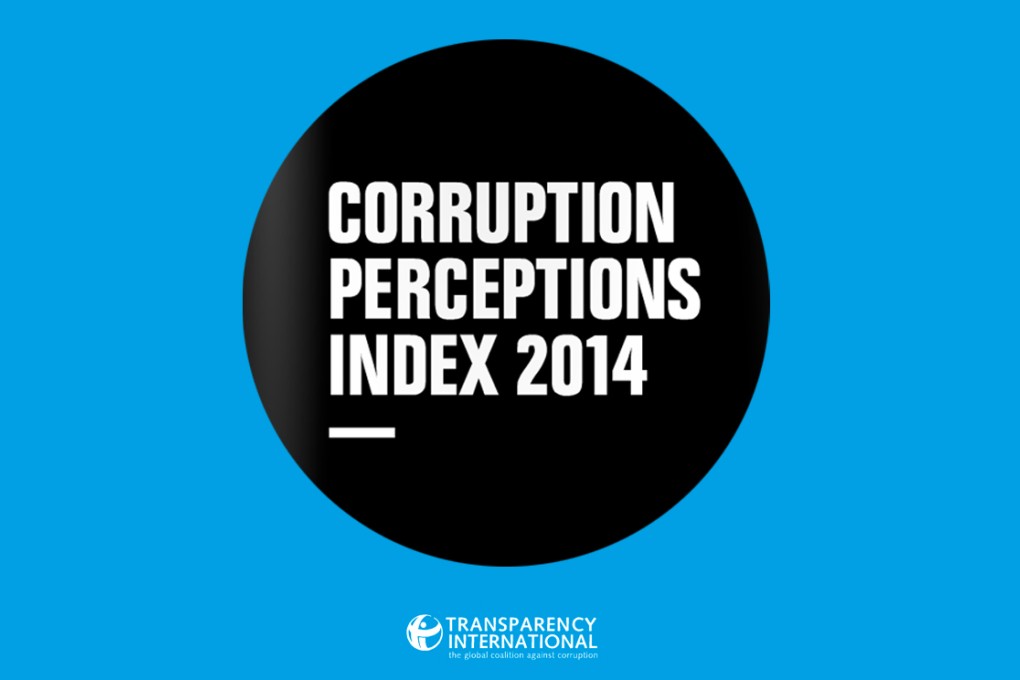China's corruption ranking tumbles despite high-profile graft crackdown
Both Hong Kong and the mainland lost ground in Transparency International ranking, falling to 17th and 100th place respectively

Hong Kong and the mainland both fell in a global corruption ranking, with China among the countries faring the worst despite President Xi Jinping's anti-graft campaign.
This year's corruption perception index from Berlin-based Transparency International saw Hong Kong slip from 15th to 17th, scoring 74 out of 100, down one point from 2013.
Denmark ranked number one for the least corrupt jurisdiction in the world with a score of 92 out of 100. The country has scored near the top since the index was established in 1995.
Somalia and North Korea ranked lowest, both scoring eight.
Mainland China's rank fell from 80th in 2013 to 100th this year, scoring 36 out of 100, a four-point drop. Turkey was the worst performer, dropping five points.
The watchdog's Asia-Pacific director Srirak Plipat described China's tumble in the index as a "harsh reality check".